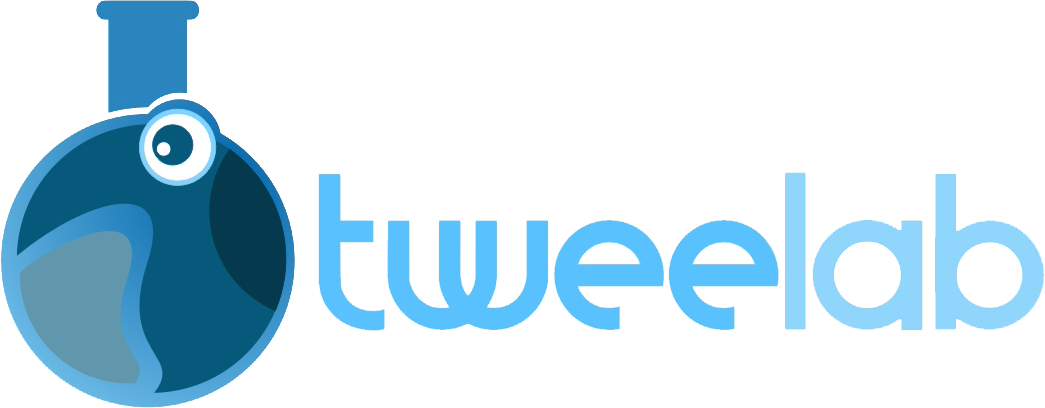Are you looking for a way to optimize your website’s meta tags and descriptions? Look no further than ChatGPT!
Our powerful tool can help you improve the visibility of your website on search engines, resulting in increased traffic and higher rankings.
With ChatGPT, you can easily create compelling titles and descriptions that accurately reflect the content on each page of your site.
Our intuitive interface makes it easy to add targeted keywords and phrases, ensuring that your pages rank highly for relevant searches.
Plus, our advanced analytics tools allow you to track the effectiveness of your optimization efforts over time, so you can make informed decisions about how to continue improving your online presence.
Don’t let poor meta tags and descriptions hold back your website – try ChatGPT today!
The Importance Of Meta Tags And Descriptions

Meta tags and descriptions are essential for SEO; they help to increase visibility and boost website rankings.
Using chatgpt to optimize meta tags and descriptions can help to ensure that websites are seen by the right people. Additionally, it can help ensure that potential customers are able to find the website quickly and easily.
Optimizing meta tags and descriptions with chatgpt is a great way to get the SEO benefits you need.
SEO Benefits
With the ever-growing number of websites and online content, it’s become increasingly important to make sure that your website stands out from the rest. This is where optimizing meta tags and descriptions come in handy. Not only do they help with improving search engine rankings but they also provide a range of SEO benefits.
One such benefit is increased visibility on search engines like Google. By incorporating relevant keywords into your meta tags and descriptions, you’re making it easier for users to find your website when searching for related topics. This can lead to better click-through rates as well since users are more likely to click on links that are relevant to their searches.
Moreover, by targeting specific keywords within your meta tags and descriptions, you’re able to attract targeted traffic to your website. These users are much more likely to engage with your content compared to those who stumble upon it randomly. As a result, this can improve user experience since visitors will be directed towards content that aligns with their interests or needs.
Lastly, optimizing meta tags and descriptions can give you a competitive advantage over similar websites in your industry. By taking the time to fine-tune these elements, you’ll have an edge over competitors who may not prioritize them as highly. In turn, this can drive more traffic to your site which could ultimately translate into conversions or sales.
In conclusion, there are many SEO benefits associated with optimizing meta tags and descriptions including increased visibility on search engines, better click-through rates, targeted traffic, improved user experience, and even a competitive advantage against other players in the market. It goes without saying then that investing time in perfecting these elements should be considered an essential part of any digital marketing strategy today.
Increasing Visibility
As a SEO content writer, it is important to understand the significance of meta tags and descriptions in increasing visibility. When optimizing these elements, one must consider keyword density – incorporating relevant keywords that are frequently searched for by users. Additionally, competitor analysis should be conducted to ensure that your website stands out from others in the same industry.
By targeting specific keywords within your meta tags and descriptions, you can also align with user intent and attract targeted traffic. Another factor to consider when optimizing meta tags and descriptions is click-through rate (CTR). By creating compelling titles and descriptions that accurately reflect the content on your website, users are more likely to click through to your page.
This not only increases visibility but also improves overall user experience as visitors will find what they were searching for. Moreover, mobile optimization plays an increasingly crucial role in CTR as most searches are now done via mobile devices. In summary, optimizing meta tags and descriptions can greatly increase visibility on search engines by improving keyword density, conducting competitor analysis, aligning with user intent, improving CTRs, and ensuring mobile optimization.
As such, taking the time to perfect these elements should be considered a fundamental aspect of any digital marketing strategy today.
Understanding Search Engine Algorithms

With the importance of meta tags and descriptions established, it’s time to delve deeper into how search engines actually rank websites. Understanding search engine algorithms is key to optimizing your website for maximum visibility.
First and foremost, keyword research is essential in creating content that will show up in relevant searches. Knowing which keywords are popular and using them strategically throughout your site can greatly improve your SEO.
Backlink building is also crucial in showing search engines that other reputable websites value your content. By having high-quality external links pointing to your site, you signal to search engines that your content is trustworthy and valuable.
Content analysis goes beyond just incorporating keywords – it involves ensuring all aspects of your content align with user intent and interests. This means creating high-quality, engaging content that provides real value to visitors.
User experience plays a major role in ranking as well. Search engines want to provide their users with the best possible results, so they prioritize sites that offer easy navigation, fast load times, and overall positive experiences for visitors.
Mobile optimization cannot be ignored either – with more people browsing on their phones than ever before, mobile-friendly design has become an absolute must. Ensuring your site is optimized for both desktop and mobile devices can make all the difference in rankings.
Tailoring Meta Tags And Descriptions To Your Content

Creating relevant meta tags is key for optimizing content for search engine rankings. Crafting engaging descriptions that accurately reflect the page’s content helps draw in users.
Tracking the results of your meta tags and descriptions helps you refine your approach for future optimization. It’s important to include keywords in your meta tags so they’re relevant to the content you’re promoting.
Writing descriptions that are concise, yet informative, will help users quickly understand the page’s content. Optimizing meta tags and descriptions can be a powerful tool when done correctly.
Creating Relevant Meta Tags
Are you tired of seeing your website buried deep in search engine results? It’s time to take a closer look at your meta tags.
Keyword research is key when it comes to creating relevant meta tags that will help boost your visibility and attract more traffic.
Tag length also plays an important role in optimizing your meta tags. While there is no set rule, keeping them between 50-60 characters ensures they won’t get cut off or appear truncated in search results. This means users can easily see what your webpage is about and decide whether or not to click through.
Consistency is key when it comes to branding, so make sure all your meta tags align with your brand message and values. Avoiding duplicate content by using unique descriptions for each page also helps prevent confusion among users and search engines.
Lastly, don’t forget about mobile optimization – as more people use their smartphones to browse the internet, ensuring your website is mobile-friendly can give you a competitive edge.
By taking these steps to optimize your meta tags, you’ll be well on your way to improving SEO rankings and driving more organic traffic to your site.
So start crafting those relevant and engaging descriptions today!
Crafting Engaging Descriptions
Now that we’ve covered the basics of optimizing meta tags, let’s dive into crafting engaging descriptions.
Your description is an opportunity to entice users to click through and explore your webpage further. Improving readability by using concise and clear language is key to grabbing their attention. Keep in mind that users are often scanning search results quickly, so make sure your description stands out.
Adding keywords to your description can also help improve SEO rankings and attract more relevant traffic. However, avoid stuffing too many keywords as this can come across as spammy or unnatural. Instead, focus on highlighting the benefits of what your webpage offers and how it addresses the user’s intent for searching a particular topic.
While it’s important to capture the user’s interest with an engaging description, avoiding click bait tactics is crucial for building trust and maintaining credibility. Incorporating calls to action such as ‘learn more’ or ‘discover now’ can be effective ways to encourage clicks without resorting to sensationalized headlines.
By following these guidelines, you’ll be able to create compelling descriptions that accurately represent your content while enticing users to click through and engage with your website.
Tracking Results
Once you’ve optimized your meta tags and crafted engaging descriptions, it’s time to track the results of your efforts.
Measuring effectiveness is critical in determining whether your strategies are working or not. By analyzing feedback from search engines and users alike, you can gain valuable insights into what’s resonating with your audience.
Adjusting strategies based on these insights becomes easier when you have access to data that helps paint a clear picture of how well your content is performing. Comparing competitors within the same niche can also provide valuable information about opportunities for improvement and help identify trends.
Incorporating tracking methods as part of your ongoing SEO strategy will enable you to make informed decisions about which changes to make moving forward. Whether it’s adjusting meta tags or tweaking descriptions, having an understanding of what works best for your website will ensure continued success over time without compromising quality or credibility.
Using ChatGPT For Easy Optimization

ChatGPT is a powerful tool that can help you optimize your website’s meta tags and descriptions. By integrating chatbot technology into your site, you can engage users in a more interactive way while also improving your SEO rankings.
One of the most important aspects of optimizing your meta tags and descriptions is conducting thorough keyword research. With ChatGPT, you can easily identify relevant keywords to include in these elements based on user queries and frequently searched terms. This not only helps improve your search visibility but also ensures that visitors are finding exactly what they’re looking for when they land on your page.
Another key benefit of using ChatGPT for optimization is its ability to track website analytics. By analyzing data such as bounce rates and time spent on pages, you can gain valuable insights into how users interact with your site and make informed decisions about where to focus future efforts.
Additionally, by leveraging social media channels alongside chatbots, you can further enhance user engagement and drive traffic back to your website.
By utilizing ChatGPT for easy optimization, you can take advantage of cutting-edge technology to improve both the functionality and discoverability of your website. Whether it’s through targeted keyword research or innovative chatbot integration strategies, this powerful platform has everything you need to stay ahead of the curve in today’s fast-paced digital landscape.
Staying Up-To-Date With SEO Best Practices

Creating quality content is key for SEO success. Utilize keywords strategically throughout your content to maximize your impact.
Leveraging ChatGPT can help keep your meta tags and descriptions up-to-date with the latest SEO best practices. This will help ensure your content is optimized for maximum visibility and search engine rankings.
Creating Quality Content
Hey there! Are you looking for ways to create quality content that ranks high in search engine results pages (SERPs)? Well, look no further than optimizing your meta tags and descriptions.
To do this effectively, start with thorough keyword research. You want to find the right keywords that will attract your target audience while also aligning with what they’re searching for. Once you have a list of relevant keywords, use them strategically throughout your content planning process.
Speaking of content planning, it’s important to keep user experience top-of-mind when creating high-quality content. Your website visitors are more likely to stay engaged and return if they have a positive experience on your site. This means not only incorporating the right keywords but also crafting well-written copy that is easy to read and engaging.
Additionally, don’t forget about social media integration – sharing links to your optimized content can help increase visibility and drive traffic back to your site.
Last but not least, ensure all of your hard work isn’t going unnoticed due to poor mobile optimization. With so many people accessing websites through their phones or tablets, it’s crucial that your content looks great across all devices. Make sure images load quickly and text is readable on smaller screens – these small adjustments can make a big difference in keeping users on your site longer and ultimately helping boost rankings in SERPs.
So take the time to optimize those meta tags and descriptions – it could be just what you need to improve your SEO efforts!
Utilizing Keywords Strategically
Now that we’ve covered the importance of optimizing meta tags and descriptions, let’s dive into utilizing keywords strategically.
As mentioned before, thorough keyword research is essential to creating quality content that ranks high in SERPs. It’s crucial to not only focus on popular keywords but also long tail keywords specific to your target audience.
When it comes to incorporating these keywords into your content planning process, relevance should be top-of-mind. Your content should align with what your target audience is searching for while also offering value and standing out from competitors.
This can be achieved through competitor analysis and finding gaps where you can offer unique insights or perspectives. Long tail keywords are a great way to attract niche audiences and improve overall ranking in SERPs.
These longer phrases may have less search volume but often lead to higher conversion rates as they indicate more specific intent from the user. By utilizing them strategically throughout your content, you’ll increase the likelihood of attracting valuable traffic to your site and ultimately improving SEO efforts.
Key Takeaways
- Optimizing meta tags and descriptions with ChatGPT can improve the visibility and rankings of your website on search engines.
- Relevant keywords in meta tags and descriptions increase visibility and click-through rates, attracting targeted traffic.
- Optimized meta tags and descriptions provide SEO benefits such as increased visibility, better click-through rates, targeted traffic, improved user experience, and a competitive advantage.
- Understanding search engine algorithms, conducting keyword research, and focusing on user experience and mobile optimization are essential for SEO.
- Crafting engaging descriptions with concise and clear language, incorporating keywords, and avoiding click bait tactics can entice users to click through.
- Tracking the results of optimization efforts and analyzing data help refine strategies and make informed decisions for ongoing SEO improvements.
- ChatGPT offers keyword research, analytics tracking, and chatbot integration to optimize meta tags and descriptions easily.
- Staying up-to-date with SEO best practices, creating quality content, and utilizing keywords strategically are crucial for SEO success.
Final Thoughts
In conclusion, optimizing your meta tags and descriptions is crucial for improving the visibility of your website on search engines. With the ever-changing algorithms of these search engines, it’s important to stay up-to-date with the latest SEO best practices.
Thankfully, ChatGPT makes this optimization process easy by providing personalized suggestions tailored to your specific content. By utilizing their services, you can ensure that your meta tags and descriptions are optimized to attract maximum traffic to your site.
Don’t let the importance of proper meta tag and description optimization go unnoticed – take advantage of ChatGPT’s services today!
Trust me when I say that doing so will undoubtedly lead to a boost in your online presence and ultimately drive more visitors to your website than you ever thought possible.

